“Cricket’s Darkest Days” highlights the most controversial moments in the sport’s history, from match-fixing scandals and doping cases to on-field confrontations and racial allegations. These incidents, including the “Monkey gate” saga and the underarm delivery, have left lasting impacts, forever changing the game’s image and integrity.
Slap-Gate: Sreesanth and Harbhajan
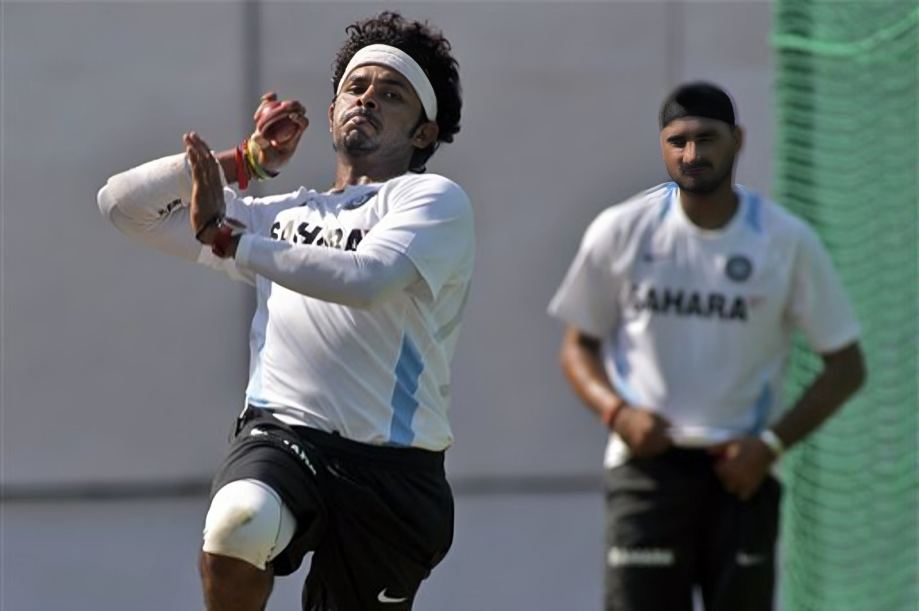
Darkest: One of cricket’s strangest scandals occurred during the 2008 IPL in a match between Mumbai Indians and Kings XI Punjab. After the game, Harbhajan Singh reportedly slapped Sreesanth during the post-match handshake, leaving the pacer in tears.
While no video evidence surfaced, the incident caused a stir. Harbhajan was banned for the remainder of the season, and Sreesanth faced criticism for allegedly provoking the spinner. Years later, Sreesanth hinted at a deeper, untold story behind the altercation.
Glenn McGrath’s Bitter Clash with Ramnaresh Sarwan
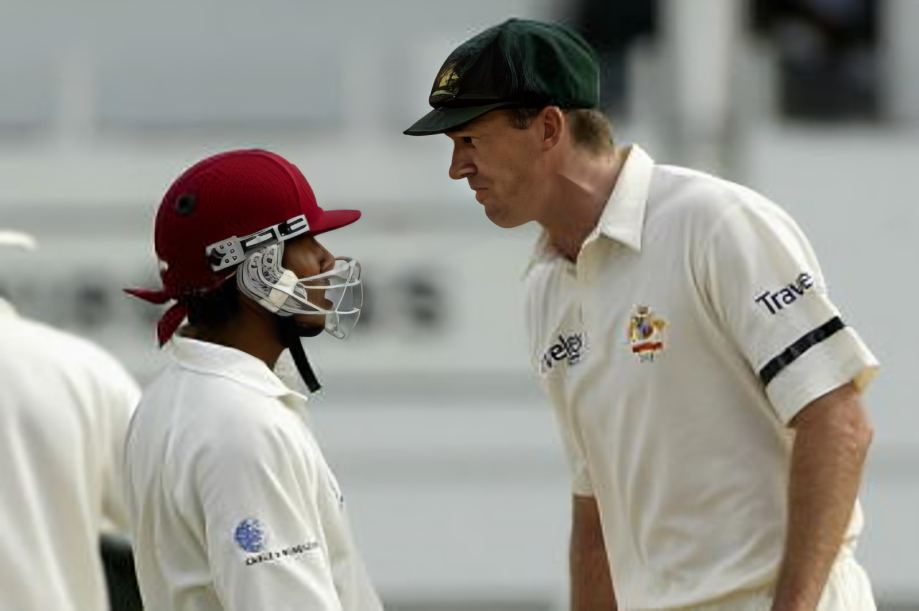
In a memorable clash during the 2003 Test between Australia and the West Indies in Antigua, Glenn McGrath and Ramnaresh Sarwan exchanged fiery words. Tensions had been building between the two when McGrath made an inappropriate comment about Sarwan and Brian Lara. Sarwan shot back, suggesting McGrath ask his wife for an answer.
Darkest: McGrath, already emotionally strained due to his wife’s battle with cancer, reacted angrily. After the match, both players apologized, and the team captains worked to ease the tension between the sides.
Kevin Pietersen’s Sacking
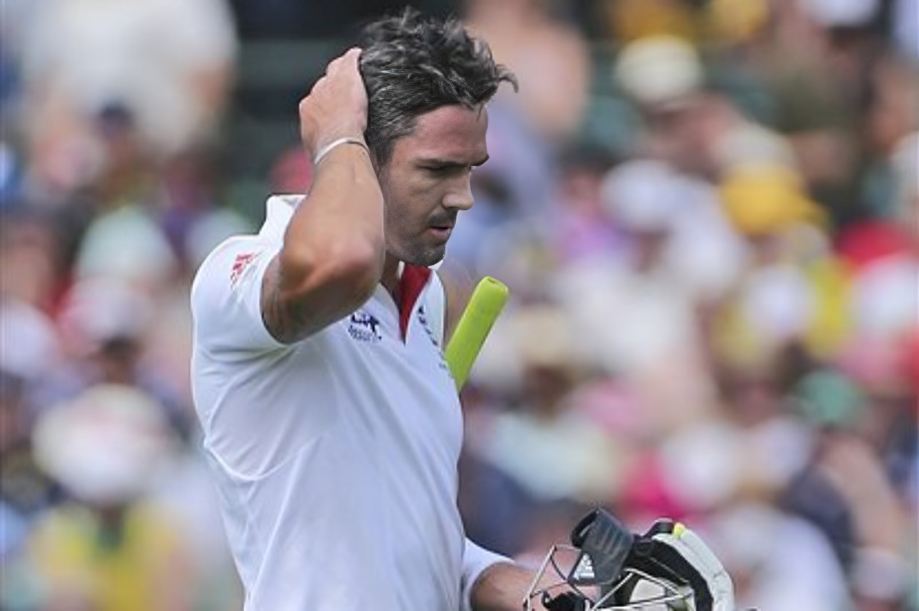
After a humiliating 5-0 loss to Australia in the 2013-14 Ashes series, England made the controversial decision to part ways with Kevin Pietersen, one of the country’s most talented yet divisive cricketers. Despite his skill, Pietersen’s presence was believed to be creating discord within the England dressing room, with management concluding that his removal was necessary for the team to rebuild and regain its competitive edge.
Darkest: The decision led to a public fallout, with Pietersen engaging in heated exchanges with former teammates and the cricketing public demanding transparency from England’s governing body.
Herschelle Gibbs’ Revelations
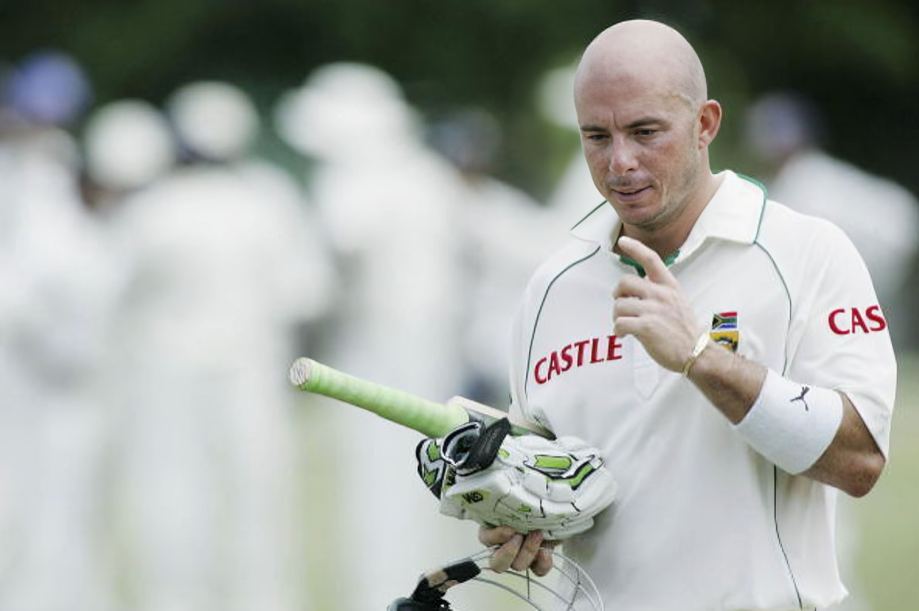
Herschelle Gibbs, who had long been known as South Africa’s “bad boy,” caused a stir in 2010 with the release of his explosive memoir, To The Point. In the book, Gibbs candidly discusses his struggles with alcohol, his time in rehab, and his marijuana use. He also opens up about his involvement in the match-fixing scandal with Hansie Cronje, which led to a six-month ban, as well as controversial sexual exploits that allegedly included his South African teammates.
Darkest: Additionally, Gibbs reveals tensions within the team, claiming that a powerful “clique” led by Graeme Smith undermined the authority of then-coach Mickey Arthur, making it difficult for the coach to manage the squad effectively.
Text-Gate: Kevin Pietersen and Andrew Strauss
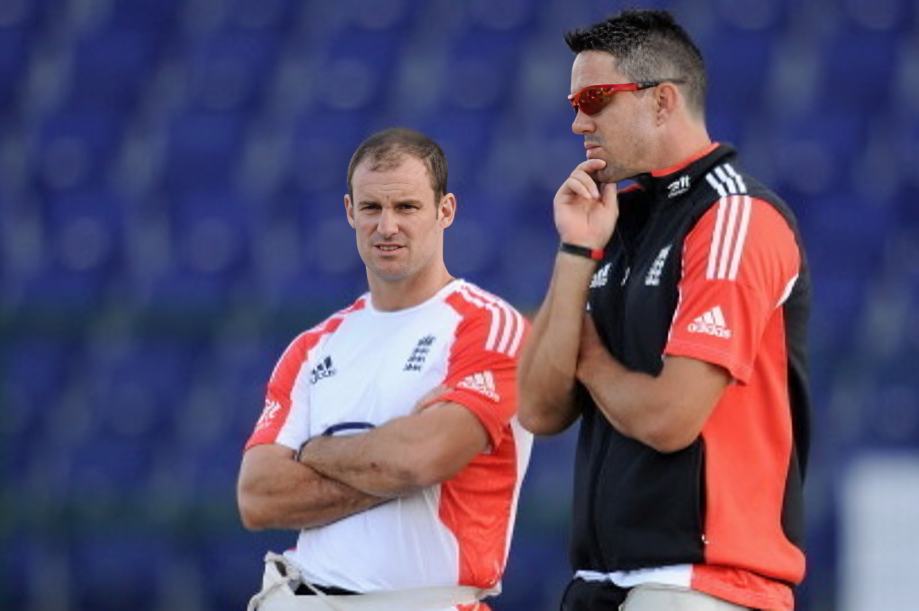
Kevin Pietersen’s tumultuous relationship with English cricket took a dramatic turn in 2012 when it was revealed that he had sent controversial texts to South African players about his England teammates. The texts included disparaging comments about England captain Andrew Strauss, leading to Pietersen’s initial exclusion from the team.
Darkest: Pietersen dismissed the controversy as mere “banter,” but a more damaging report surfaced, accusing him of passing on tactical information to the South African team, including details on how to bowl to Strauss to dismiss him.
After a period of exile, Pietersen was eventually reinstated into the squad following Strauss’ retirement and the appointment of Alastair Cook as captain.
Muttiah Muralitharan’s No-Ball Saga in Australia
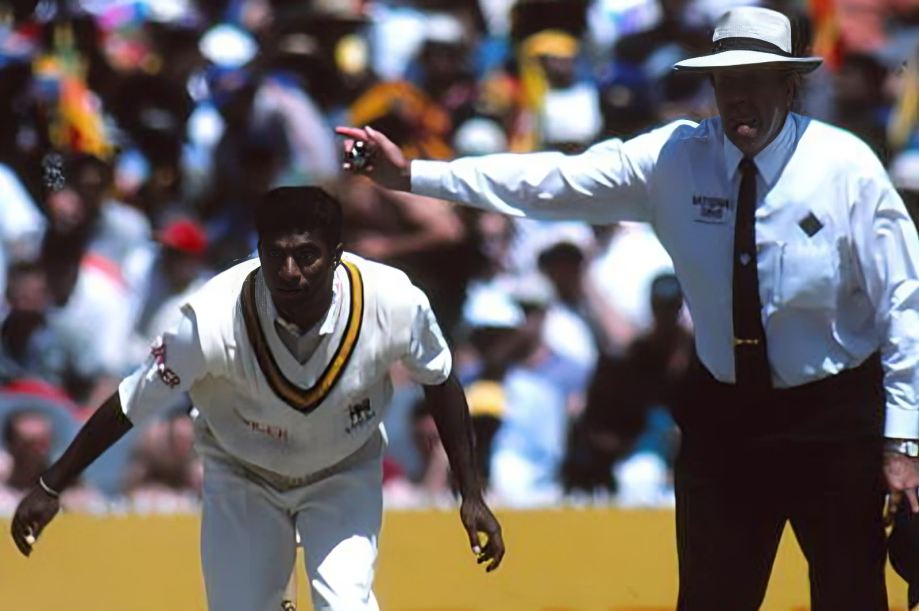
On Boxing Day in 1995, Muttiah Muralitharan’s career faced a major controversy at the Melbourne Cricket Ground when umpire Darrell Hair no-balled the Sri Lankan spinner for an illegal bowling action. This moment marked the climax of a tense summer of cricket in Australia.
While there had been speculation that Hair might no-ball Muralitharan, few expected it to actually happen. However, when Hair repeatedly no-balled Muralitharan, shock spread throughout the crowd. Initially, the Sri Lankans believed the no-balls were due to a front-foot violation, but it soon became clear that the issue was with Muralitharan’s bowling action.
In response, Sri Lanka’s captain, Arjuna Ranatunga, instructed his team not to shake hands with Australian players during the following one-day series. The tension lingered, resurfacing in 1999 when Ross Emerson no-balled Muralitharan again in Adelaide.
Trevor Chappell’s Underarm Ball
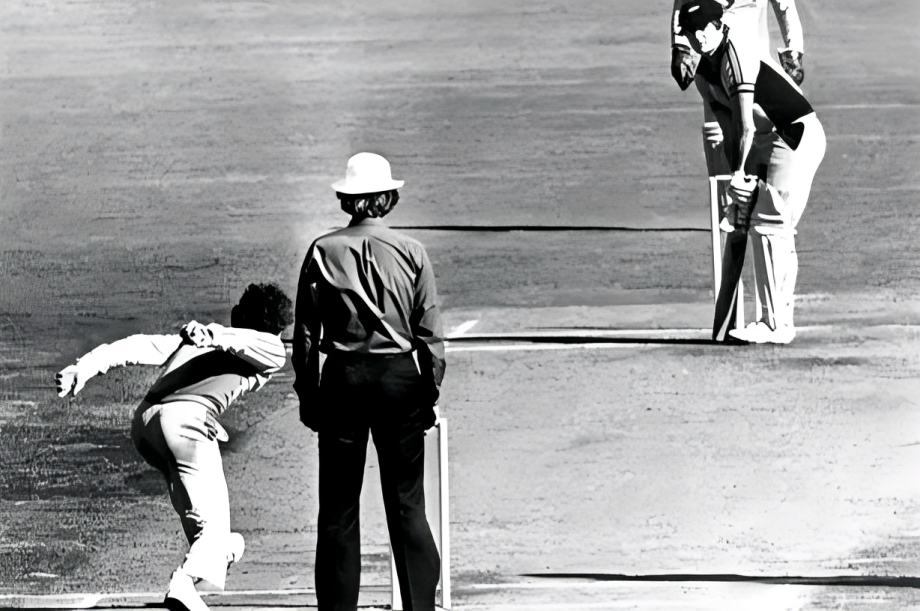
Trevor Chappell’s underarm delivery in the 1981 one-day match against New Zealand in Melbourne is one of the most controversial moments in cricket history. With the series tied 1-1, New Zealand needed six runs from the final ball of the third match to force a tie.
As Brian McKechnie prepared to face the last delivery, Australian captain Greg Chappell instructed his brother, Trevor, to bowl the ball along the ground, denying McKechnie the chance to hit a six. Trevor followed the order, and although wicketkeeper Rod Marsh visibly expressed his disapproval, Australia won the match and claimed the series. The incident sparked outrage and remains a dark chapter in the game’s history.
Shane Warne’s Drug Scandal
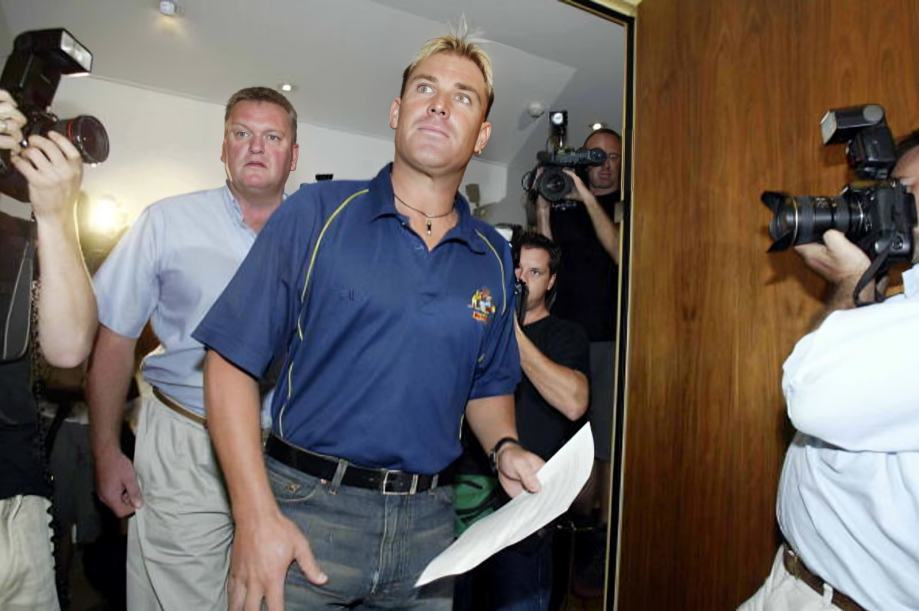
In 2003, Australia’s World Cup campaign faced a major setback when Shane Warne tested positive for a banned diuretic while recovering from a shoulder injury. Warne claimed he took the substance to improve his appearance, citing its use for weight loss and fluid drainage.
However, diuretics are often used as masking agents for performance-enhancing drugs, leading the World Anti-Doping Authority to suspect foul play. Warne returned home to Australia, missing the remainder of the World Cup, which Australia went on to win. He was subsequently handed a one-year ban from cricket.
Sydney Test 2008
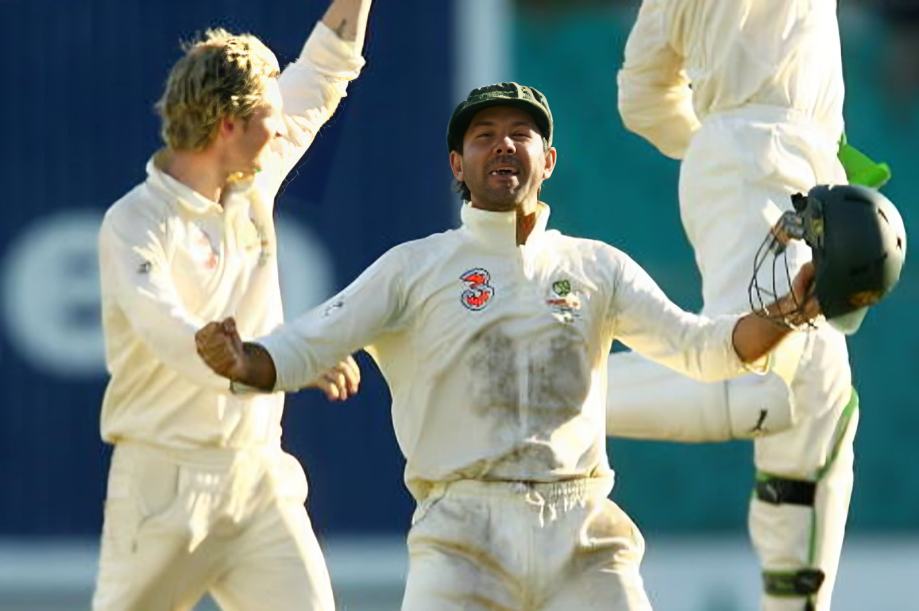
The 2008 Sydney Test between Australia and India saw a dramatic win for Australia, marred by controversial umpiring and heightened tensions. Harbhajan Singh was accused of making a racist comment towards Andrew Symonds, and disputes over a low catch and Australia’s celebrations fueled further anger. Anil Kumble condemned Australia’s sportsmanship, leading to Harbhajan’s three-match ban and threats from India to end the tour.
Monkey-Gate: Andrew Symonds and Harbhajan Singh
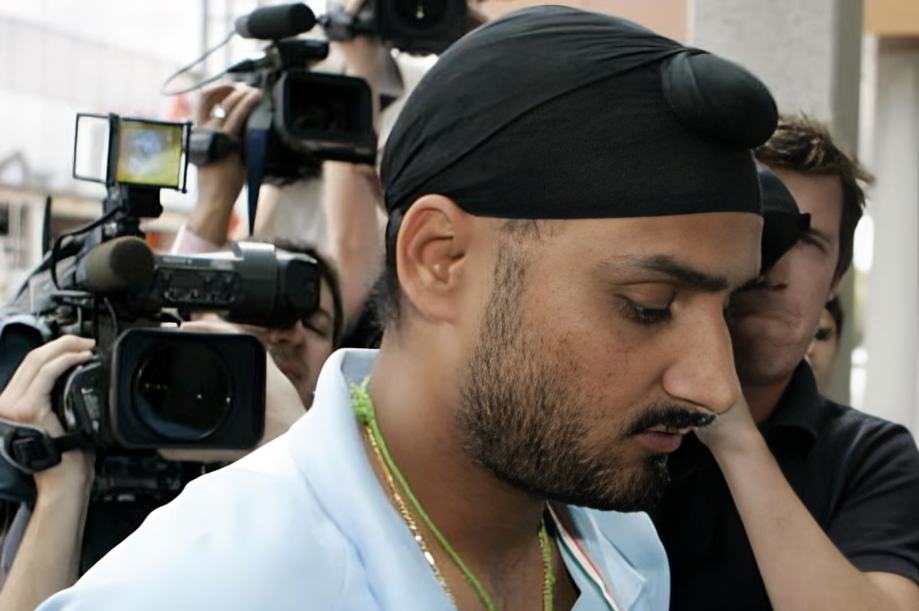
The “Monkeygate” saga, which erupted in the 2008 Sydney Test, began during India’s victory in the inaugural ICC World Twenty20. After India’s semi-final win over Australia, Andrew Symonds criticized their celebratory behavior, leading to a confrontation with Harbhajan Singh. Later that year, during a one-day series in India, Symonds was subjected to “monkey” chants from the crowd, with reports suggesting Harbhajan was involved.
The issue resurfaced in the Sydney Test when Harbhajan allegedly made a racist remark towards Symonds. The off-spinner was initially banned for three matches, but after an appeal, he was acquitted of the charges on January 28.
